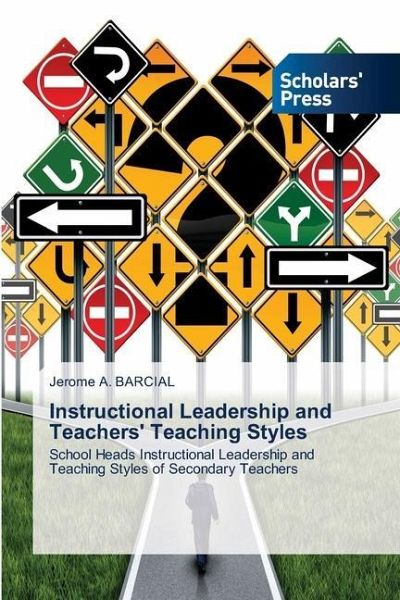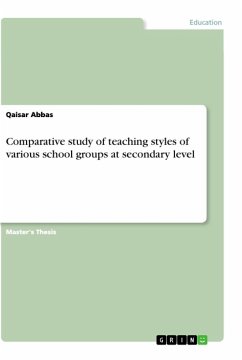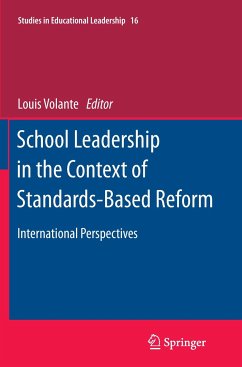
Instructional Leadership and Teachers' Teaching Styles
School Heads Instructional Leadership and Teaching Styles of Secondary Teachers
Versandkostenfrei!
Versandfertig in 6-10 Tagen
34,99 €
inkl. MwSt.

PAYBACK Punkte
17 °P sammeln!
Every leader has a vital role to play in the growth and development of his or her organization. The principal's role in instructional leadership has traditionally been thought of as communicating high expectations for teachers and students, supervising instruction, monitoring assessment, and student progress, coordinating the school's curriculum, promoting a climate for learning, and creating supportive work. Instructional leadership in schools has been a major cause for concern, not only in the Philippines but from a global perspective. Leaders are symbolically seen as bulwarks, as they are r...
Every leader has a vital role to play in the growth and development of his or her organization. The principal's role in instructional leadership has traditionally been thought of as communicating high expectations for teachers and students, supervising instruction, monitoring assessment, and student progress, coordinating the school's curriculum, promoting a climate for learning, and creating supportive work. Instructional leadership in schools has been a major cause for concern, not only in the Philippines but from a global perspective. Leaders are symbolically seen as bulwarks, as they are responsible for the success of their organization. Supportive school heads develop favorable work settings that foster high morale and job integrity, feelings of dignity, and more to meet ambitious objectives and goals. Thus, achievement-oriented leadership helps principals set such objectives and goals, which makes teachers active, energetic, and motivated. The research literature found thatthe principal and his style of leadership have a great influence on the various processes in the school (Hau et al., 2016). The pattern of leadership in its entirety is called "Management Style".












